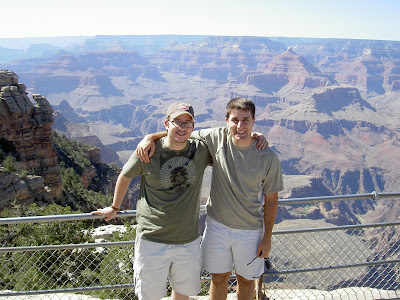And, watching the film, the moment that became the deafening defeat, for me, was when Tao and Eastwood walk into that barbershop. The barber--whom Eastwood has prefaced as a "real man"--is sitting on his chair, waiting for business, looking through a porn magazine.
 |
| The Education of a "Real Man" in Gran Torino (which begins with porn use) |
The barber's answer--and by extension, Eastwood's character in Gran Torino--is a resounding yes.
But the real paradox of this moment is that, only a few scenes prior, Eastwood's character watches from his front stoop as a middle-aged woman drops her groceries on the sidewalk as she's trying to carry them from the back of her car. A group of teenagers walks by. None help, and one gesticulates with an overt sexual enactment. The others laugh. Eastwood's character bemoans this display--and rightly so--and is impressed when Tao (the character displayed as the total opposite of a "real man") comes over to help her. It's a moving scene, and rightly so.
Yet, the irony is here: Eastwood's barber friend is fanning the pages of a magazine where women are portrayed as objects--totally useless other than to arouse men's appendages--and yet here, Eastwood's character expects these teenage men to help the women rather than see her as a sexual object through which to make themselves laugh.
So, we're teaching men two things, here: the women in porn magazines are not real women. Those are the kinds of women you're supposed to use, abuse, see as meat for your hunger, and basically dominate. In essence, they're not real and they have no emotions. So the disgust Eastwood's character evidences when the teenage boys make fun of the middle-aged woman is essentially this: That middle-aged woman is a real woman. She has emotions and feelings. You can't treat her as a sexual object or a punchline to a dirty joke.
It's the same old misogynist practice: some women are to be respected, others are to be treated as less-than people and used for pleasure. That's the only reason Eastwood's character can walk into a barbershop where the "real man" is using porn, yet he serves as the model man. A tough man. A real man.
We see the same kind of overt misogyny is the fodder of Tucker Max. In the sickening chants of a Yale Fraternity. Among e-mails of the previous Duke Lacrosse team. Ultimately, young men of every class, race, and place are adept at learning a tragic lesson from the men who are supposed to be their models: some women matter; some women don't. And a real man learns to tell the difference. A real man learns how to abuse and use women.
 |
| Gregory Peck as Atticus Finch in To Kill a Mockingbird |
Cornel West is right when he says, "We know that misogyny is shot through the culture. It's in country. It's in rhythm and blues. It's in the White House, and it's on Wall Street." But the men of this generation and the next will be able to choose what kind of men we are going to be. It's high time we put down the glossy magazines portrayed women as objects and pleasure sites. And it's time we call out misogynist actions, jokes, businesses, and ideas as unacceptable--whether they're on the campus of Ivy League schools like Yale, on the fields of sports teams, or in our own hearts and bodies.
Like much social change, it starts by turning away from one ideal, and embracing another. Goodbye, Domination. Hello, Empowerment.

